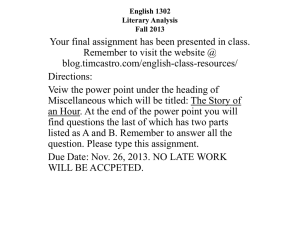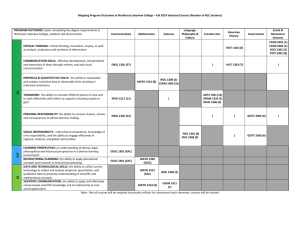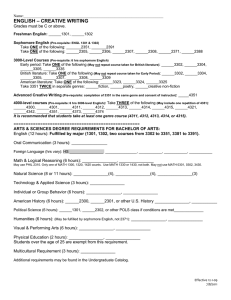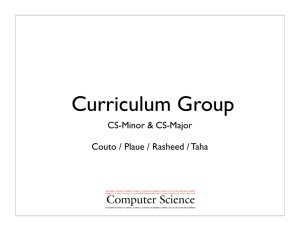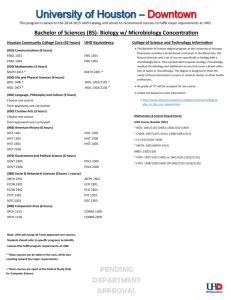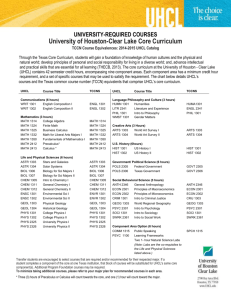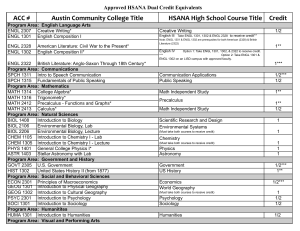Leadership Through the Humanities
advertisement
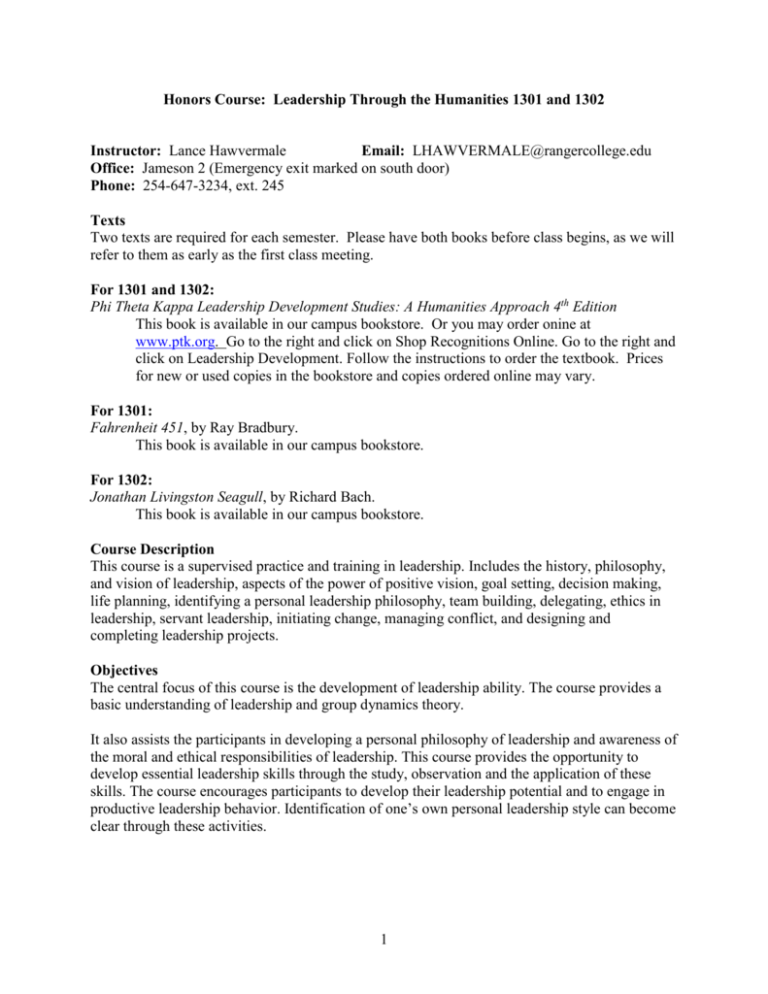
Honors Course: Leadership Through the Humanities 1301 and 1302 Instructor: Lance Hawvermale Email: LHAWVERMALE@rangercollege.edu Office: Jameson 2 (Emergency exit marked on south door) Phone: 254-647-3234, ext. 245 Texts Two texts are required for each semester. Please have both books before class begins, as we will refer to them as early as the first class meeting. For 1301 and 1302: Phi Theta Kappa Leadership Development Studies: A Humanities Approach 4th Edition This book is available in our campus bookstore. Or you may order onine at www.ptk.org. Go to the right and click on Shop Recognitions Online. Go to the right and click on Leadership Development. Follow the instructions to order the textbook. Prices for new or used copies in the bookstore and copies ordered online may vary. For 1301: Fahrenheit 451, by Ray Bradbury. This book is available in our campus bookstore. For 1302: Jonathan Livingston Seagull, by Richard Bach. This book is available in our campus bookstore. Course Description This course is a supervised practice and training in leadership. Includes the history, philosophy, and vision of leadership, aspects of the power of positive vision, goal setting, decision making, life planning, identifying a personal leadership philosophy, team building, delegating, ethics in leadership, servant leadership, initiating change, managing conflict, and designing and completing leadership projects. Objectives The central focus of this course is the development of leadership ability. The course provides a basic understanding of leadership and group dynamics theory. It also assists the participants in developing a personal philosophy of leadership and awareness of the moral and ethical responsibilities of leadership. This course provides the opportunity to develop essential leadership skills through the study, observation and the application of these skills. The course encourages participants to develop their leadership potential and to engage in productive leadership behavior. Identification of one’s own personal leadership style can become clear through these activities. 1 Expectations and Assignments As an honors course, the requirements are high: Participation: Students are expected to attend every session. Unfortunately, life’s events (illness, death in the family or work assignments) may prevent you from attending class. If you are unable to attend for any reason, please email me in advance. Failure to complete reading assignments on the first day a unit is introduced or participate in class discussions will result in a deduction of participation points. Study and Reading: Since class time limits the depth of instruction in each session, students are expected to have read each assignment prior to class and be ready to discuss them in class. Synopsis/ Summary and Presentation: A group of students will be assigned to read an article from the text. Each member of the group will write a 2-3 page (typed/double-spaced) description of the article or material assigned, including what leadership skill, concept or idea this reading made clear to you. The group will present a 10-minute summary of at least one synopsis to the class using appropriate technology. Debate: We will break into teams and debate various forms of government and how each addresses Maslow’s Heirarchy of Needs. Grades will be determined by preparation and thoughtfulness. HUMA 1302 will debate a different topic. Film: We will watch one complete film in class. Students will present a 500-word paper over the leadership qualities displayed in the film as they relate to material discussed in class. Leader Project: Groups will be selected by random, and each student will be assigned a historical figure who demonstrated positive leadership characteristics. The students will each produce a paper and a video presentation that addresses the leadership style of their assigned subject. Guidelines for this project will be given on the second day of class. The presentations will be made during the last few weeks of class. Quizzes and Tests: We’ll take quizzes over readings from the two textbooks and from the film clips viewed in class, as well as a mid-term exam and a final exam. Grading Assignment Points Quizzes 100 each Mid-term and Final 200 each Participation 100 Debates/Group Work 100 Film Paper 100 Chapter Presentation 100 Leader Presenation 300 2
